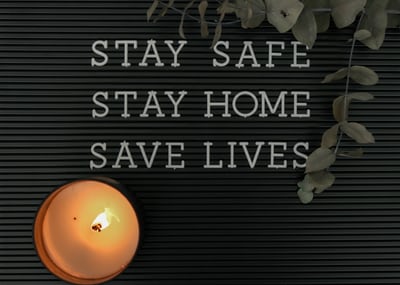
The coronavirus pandemic has resulted in drastic changes to how we live our lives. Measures brought in by the government to try and slow down the spread of the virus in the UK, have meant that, for the foreseeable future at least, family life will be very different.
For divorced or separated parents, how and when they spend time with their children is something that may need to be reorganised.
Child arrangements: flexibility is key
The coronavirus is taking us into unchartered territory. Families are being asked to isolate for 14 days, even if just one member of the household gets symptoms of the coronavirus. This means staying at home and not having any visitors, including other family members.
As a result, for the parent not living in the household, it will not be possible to visit their child during this timeframe. While this can be extremely upsetting and frustrating, it’s vital that families in this position do everything they can to stop the virus spreading and NHS services becoming overwhelmed.
Being more flexible about child arrangements is going to be crucial in these coming weeks. If a child was due to visit the other parent and they or someone in their household has symptoms, it’s important the visit does not go ahead as planned. Video calling, for example, may have to replace scheduled face-to-face contact during any periods of household isolation.
While children seem at the moment to have milder reactions to the coronavirus, their welfare and the welfare of other family members (as children may be more likely to be asymptomatic carriers), have to take precedence.
Make preparations in advance
Over the coming weeks, we could see stricter measures being brought in to try to slow down the spread of the virus.
With things changing on a daily basis, it can seem pointless to plan ahead. However, if possible, have discussions with the other parent now about how you will manage child arrangements if either you, or them, have to go into self isolation.
Make sure you both understand that child arrangements may need to be more flexible as a result of the epidemic and any changes you make to how and where contact will take place, will only be temporary.
Having plans in place now, can help to reduce worry and stress further down the line.
Neil Graham, a Partner at Grayfords comments as follows: “the key to any arrangements for children is their welfare which is always the paramount consideration. Any orders made by the Court or any arrangements agreed between parents will have been reached as a result of considering what is in their children’s best interests and how their welfare should best be served. Part of that process involves ensuring that children regularly see the parent with whom they do not live in accordance with a pattern that affords them familiarity and stability and that works well for them.
Any Order made by the Court also remains in force until it is changed by a further order although the practical arrangements can always be altered from time to time by agreement between both parents.
The advice of H M Government as at 25 March was that children should still be allowed to pass freely between households in order to facilitate those arrangements.
It is obviously also important that arrangements do not expose children to any harm and that the arrangements do not contradict the Government’s advice on Covid-19 or Coronavirus, the recommendations of the World Health Organisation, the recommendations of the Chief Medical Officer and any advice from the NHS or a Doctor received at any stage, in each case as updated regularly in accordance with the rapidly developing wisdom.
The best way of balancing these two aspects of a child’s welfare is for parents to agree between themselves how to address whether there is a need for any alterations to the existing arrangements and, if they agree that there is, to agree alternative arrangements that provide for children to enjoy time with both parents without breaching the advice and recommendations referred to above.
If that is not possible, a reputable and accredited family mediator may be able to assist. Most mediators are able to offer mediation quickly and remotely via Skype. Details can be sourced easily via https://www.nfm.org.uk/ .
As a last resort, an application can be made to the Court provided the person applying has attended a Mediation Information Assessment Meeting which can be done remotely. The Courts may determine some applications on paper and the Court service is also in the process of setting up arrangements to conduct hearings via telephone or business Skype.
Being able to reach an agreement will always be better for children than knowing that their parents had to seek the assistance of the Court.
All of us at Grayfords remain here to help, however, if formal advice is needed.”
Our family solicitors are here if you need us
To keep you and our solicitors safe during the pandemic, we are offering Skype and telephone consultations. Get in touch today to speak to one of our family solicitors.

